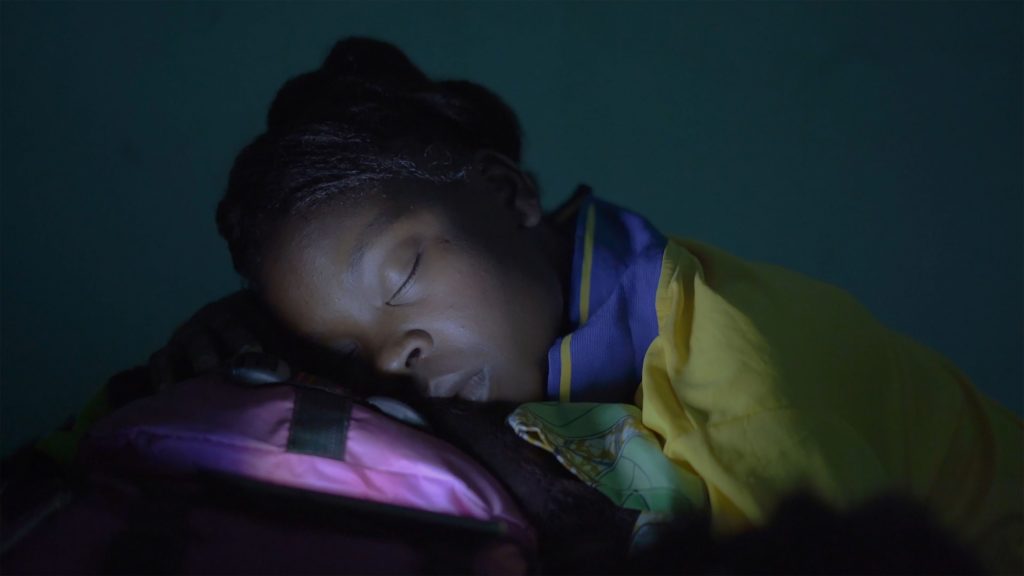São Paulo – Brazil’s African Film Festival (MCA) will take place online from October 1 through 10. The SESC Digital platform will screen 30 fiction films and documentaries from 16 countries in Africa, most of them premiering in Brazil. The festival features 13 Arab films, including a fictional feature film from Sudan, three full-length documentaries from Algeria, and seven short films from Arab female directors from Sudan, Tunisia, Morocco, Egypt, and Algeria. The Competitive Festival of African women directors includes a short film from Mauritania and one from Tunisia. The free event is held by SESC São Paulo.
This edition gives prominence to genre cinema and has partnerships with other festivals. Out of the ten feature films, eight are premieres in Brazil. The opening feature film will be Juju Stories (2021) by Nigerian collective Surreal 16, which follows three witchcraft stories directed by C.J. Obasi, Abba Makama, and Michael Omonua. “Generally, the idea of African cinema harks back to art or political movies, and we always want to break these stereotypes,” Ana Camila Esteves was quoted as saying in a news release. She and Beatriz Leal Riesco are the festival’s curators.

The supernatural fiction feature film You Will Die at Twenty (2019) by Amjad Abu Alala of Sudan will a 500-view limit. The full-length documentaries from Algeria are My English Cousin (2019) by Karim Sayad, 143 Sahara Street (2019) by Hassen Ferhani, and The Last Shelter (2021) by Ousmane Samassekou (pictured above).
A free course on African film genres given by Jusciele Oliveira is part of the event. The other movies to be screened include productions from Nigeria, Uganda, South Africa, Benin, Cameroon, Madagascar, Mali, Central African Republic, Ruanda, and Senegal.
Short films
The two short-film programs that are part of the festival are cocurated by two other festivals. One is the result of a partnership with Brazil’s Arab Women’s Film Festival, which screen seven films from Sudan, Tunisia, Morocco, Egypt and Algeria with different themes, genres and formats curated by Analu Bambirra and Ana Camila Esteves.
“This short film session was the result of a meeting that Bambirra and I had when recording ANBA Cast. We hadn’t known each other until then, and we decided to leverage these two areas. On her festival, the films are made by women from the Arab world, while our festival is focused on the African continent, so we crafted this intersection to think on female filmmakers in North Africa, and it was great, we get along very well and learned a lot one from another. It’s very important for us to shed a light on the North African production, which is often not seen as Africa, but it’s Africa, so focusing on Arab African women has been huge curatorially speaking,” Ana Camila Esteves told ANBA.
As for the second program, it brings 13 movies from Benin’s Festival International des Films de Femmes de Cotonou 2021, headed by Cornélia Glele. Films from ten African countries, including Mauritania and Tunisia, participate in this first MCA competitive festival taking place simultaneously in Brazil and Benin, with a Brazilian panel of judges comprising Morgana Gama, Bethânia Maia, and Mariana Angelito.
All the festival’s films will be available solely on Brazilian territory and will be screened 24/7 online during the entire week of the festival, except for Gagarine (2020). The digital catalogue of the festival will include previously unreleased material featuring translations into Portuguese of papers on African cinemas, exclusive synopses, and reviews of the feature films by Nigerian critic Dika Ofoma.
The program of Brazil’s African Film Festival is supported by Cinemateca da Embaixada da França no Brasil and Institut Français, an agency affiliated with France’s Ministry of Foreign and European Affairs, which brings the feature films You Will Die at Twenty, 143 Sahara Street and Gagarine and the short-film session of the Arab Women’s Film Festival.
The online event is free. To watch, go to the SESC platform. Check out the full program at the festival’s website.
Translated by Guilherme Miranda




